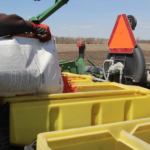
USDA to biotech: Call your own compliance
Steven Suppan, July 30, 2019 | The U.S. Department of Agriculture wants agribusiness to sell more genetically engineered (GE) seeds and food products all over the world, as soon as possible. This rule would go beyond already controversial genetically modified organisms (GMOs) to encompass hundreds of new products of new gene and genome editing techniques. The fastest way to do that?...Continue reading "USDA to biotech: Call your own compliance"
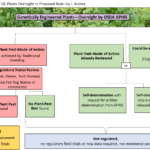
Biotechnology Oversight Gets an Early Make-Over by Trump’s White House and USDA: Part 2 – The USDA-APHIS Rule
Jennifer Kuzma, July 2, 2019 | USDA-APHIS has proposed an oversight process for GE crops that appears to be a significant departure from the current one. This article discusses the features of the proposed new rule, along with its strengths and weaknesses and my recommendations for how it should be amended. ...
Biotechnology Oversight Gets an Early Make-Over by Trump’s White House and USDA: Part 1—The Executive Order
Jennifer Kuzma, June 18, 2019 | Last week, the Trump administration set the tone for its oversight of agricultural biotechnology (ag biotech) through two major actions: 1) Signing the Modernizing the Regulatory Framework for Agricultural Biotechnology Products Executive Order; and 2) Proposing a draft rule on the Movement of Certain Genetically Engineered Organisms (GEOs), changing how USDA reviews GE plants....
Governing evolution – A socioecological comparison of resistance management for Bt crops
Zachary Brown, March 21, 2019 | Cooperative management of pest susceptibility to transgenic Bacillus thuringiensis (Bt) crops is pursued worldwide in a variety of forms and to varying degrees of success depending on context. We examine this context using a comparative socioecological analysis of resistance management in Australia, Brazil, India, and the United States. We find that a shared understanding of resistance risks among government regulators, growers, and other actors is critical for effective governance. ...
Procedurally Robust Risk Assessment Framework for Novel Genetically Engineered Organisms and Gene Drives
Jennifer Kuzma, March 8, 2019 | This article reviews the current state of gene-editing regulation for crops, illuminating the ways in which technology developers are repeating practices that may lead to the public and ethical failures of the first generation genetically engineered crops, and argues that the contentious socio-political history of genetic engineering will repeat itself for gene editing if these continue....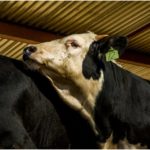
WP: Gene-edited farm animals are coming. Will we eat them?
“We’re at this inflection point in society, where gene editing is really taking off, and now is the time we could have a more sustained public conversation about how we want it used in our world and how we don’t want it to be used,” said Jennifer Kuzma, co-director of the Genetic Engineering and Society Center at North Carolina State University. “All the polls indicate that people are less comfortable with animal biotechnology than plant biotechnology... A regulatory system cannot be based 100 percent on science or scientific risk, and values come into play when setting the standards.”...Continue reading "WP: Gene-edited farm animals are coming. Will we eat them?"

Issues: Regulating Gene-Edited Crops
This article reviews the current state of gene-editing regulation for crops, illuminating the ways in which technology developers are repeating practices that may lead to the public and ethical failures of the first generation genetically engineered crops, and argues that the contentious socio-political history of genetic engineering will repeat itself for gene editing if these continue....
AP: Kuzma discusses need for case-by-case scrutiny of gene-edited foods
Per Kuzma, companies will have to be up-front about how these new foods were made and the evidence that they’re healthy. She wants regulators to decide case-by-case which changes are no big deal and which might need more scrutiny.“Most gene-edited plants and animals are probably going to be just fine to eat. But you’re only going to do yourself a disservice in the long run if you hide behind the terminology,” Kuzma said....Continue reading "AP: Kuzma discusses need for case-by-case scrutiny of gene-edited foods"
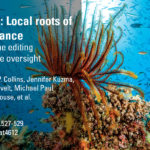
Editing nature: Local roots of global governance
Dr. Jennifer Kuzma, Goodnight-NC GSK Foundation Distinguished Professor and Co-director of the Genetic Engineering and Society Center, was one of the lead authors on an interdisciplinary team calling for global oversight of environmental gene editing in this Science Policy Forum, Editing Nature: Local roots of global governance....Continue reading "Editing nature: Local roots of global governance"

Washington Post: Kuzma calls for mandatory regulatory process for gene-edited foods
“We need a mandatory regulatory process: not just for scientific reasons, but for consumer and public confidence,” Kuzma said. “I think the vast majority of gene-edited foods are going to be as safe as their conventionally bred counterparts. But I don’t buy into the argument that’s true all the time for every crop.”...
Kuzma Urges a Broader Conversation on Underlying Ethics of Gene Editing Technology
Source: Financial Express This Man Rewrites the Genetic Code of Animals By: Aki Ito | July 19, 2018 In this article about Dan Carlson, a scientist bioengineering hornless cattle, Jennifer Kuzma, co-director of the Genetic...
Kuzma quoted on ecological impacts and regulation of GE products
To critics, the case laid bare glaring weaknesses in the country’s oversight of genetically engineered, or GE, crops. While biotechnology’s defenders say the process is already overly rigorous, others have long argued that regulations, which haven’t changed significantly since 1987, don’t do enough to protect agriculture and the environment. Neither the USDA nor any government agency must weigh the full social, economic and ecological impacts of GE products, says Jennifer Kuzma, co-director of the Genetic Engineering and Society Center at North Carolina State University. “There’s really no place that’s looking at this broadly from a risk-benefit perspective.”...Continue reading "Kuzma quoted on ecological impacts and regulation of GE products"

Kuzma in Scientific American article: Weeds Are Winning in the War against Herbicide Resistance
Herbicides are under evolutionary threat. Can modern agriculture find a new way to fight back? Excerpt: For farmers, protecting fields from pests and plagues is a constant battle fought on multiple fronts. Many insects have...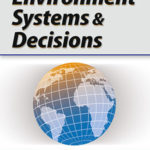
Publication: Comparative, collaborative, and integrative risk governance for emerging technologies
GES Co-director, Dr. Jennifer Kuzma and affiliated faculty member, Dr. David Berube, have published an article in the journal Environment Systems and Decisions that argues for a risk governance approach to emerging technologies, such as synthetic biology...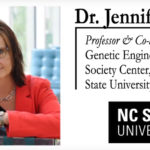
SciLine Briefing: Jennifer Kuzma on Gene Drives
VIDEO: GES Center Co-director Jennifer Kuzma recently participated in SciLine’s first Media Briefing on Gene Drives. Date recorded: April 25, 2018 About This Media Briefing: Gene drives represent a new take on genetic engineering offering...Continue reading "SciLine Briefing: Jennifer Kuzma on Gene Drives"